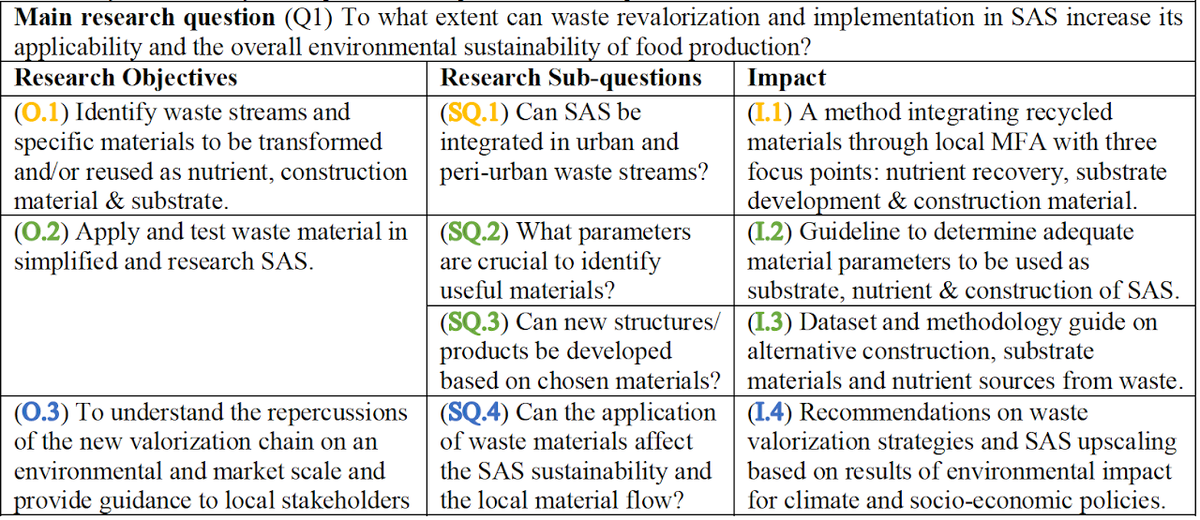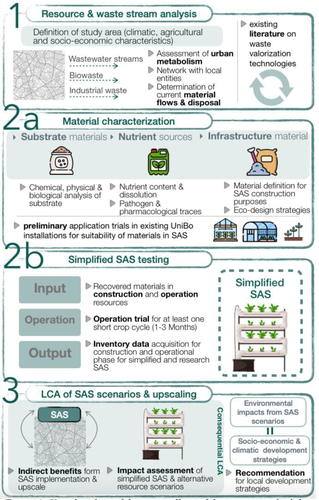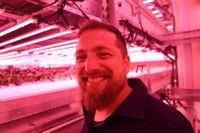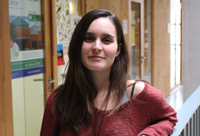Soilless agricultural systems (SAS) systems are gaining popularity due to their potential to overcome challenges in traditional soilbased agriculture. They reduce resource use and emissions while increasing fresh produce access in urban areas. However, SAS implementation faces limitations due to high costs and reliance on imported resources. The MADLoop project aims to develop waste material recovery strategies for local SAS resources to enhance self-sufficiency and food security in urban informal settlements in Nairobi. It seeks to integrate waste valorization for SAS development and assess agronomic and environmental implications. The project also focuses on increasing availability and forming a network to encourage material circularity. The project's methodology comprises three main pillars, the first involving material flow analysis to quantify existing material and resource flows focusing on revalorization into SAS substrate, nutrients, and construction materials. The second pillar involves the applicability of potential materials, requiring their collection and characterization to identify the suitability for crop production, additionally testing these materials in various SAS structures and research installations. The final pillar addresses environmental analysis and upscaling feasibility, using life cycle assessment to determine the environmental impact of recovered material application in SAS. The MADLoop project expects significant impacts in scientific, economic/technological, and societal aspects. It aims to generate new knowledge on waste resources valorization strategies. A successful implementation can create new markets, reduce reliance on imports, and investment costs for SAS. The project's outcomes can lead to increased local resilience, reduced production emissions, and improve resource availability and affordability, extending beyond the assessed area, benefiting small-scale farmers, local citizens, and food production in various regions. Outline

MADLoop aims to increase short- and long-term sustainability of SAS through life cycle thinking and the development of alternative and simplified production strategies with local resources. These overall objectives go beyond the state-of-the-art, combining the application and construction of SAS to encourage food resilience with the analysis of waste flow bound to a specific area to reduce material and resource dependency. The proposed environmental analysis combines both waste management and agricultural production strategies, determining synergy potentials to reduce environmental impacts on both processes.Research Objectives and Impacts

The MADLoop project methodology is structured around three main pillars, combining desk research (material flow and environmental analysis) with experimental work (material testing and SAS construction). Material Flow Analysis (MFA): Quantifies local material and resource flows in Nairobi’s informal settlements, focusing on industrial waste streams and nutrient recovery for reuse as substrates, nutrients, and construction materials in soilless agriculture (SAS). Material Applicability & Testing: Involves collecting and characterizing waste-derived materials (physical, chemical, biological properties) to assess their suitability for SAS. Promising materials are then tested in agronomic trials within experimental SAS systems, including newly designed eco-friendly structures. Environmental & Feasibility Analysis: Uses Life Cycle Assessment (LCA) to evaluate the environmental impacts of recovered material applications compared to conventional options. The analysis also examines scalability, resource substitution, and potential socio-economic consequences, providing insights for local policy recommendations. These pillars are supported by training, skills development, and dissemination activities to maximize knowledge transfer and stakeholder engagement.Work Structure
The project also aims for a further skill development, which will be encouraged through the host institution, University of Bologna (UniBo), with a focus on the improvement of agronomic skills, development of SAS design and construction knowledge as well as abilities for project coordination and the cooperation with other institutions. The present project also proposes a secondment at Jomo Kenyatta University of Agriculture and Technology (JKUAT) during the first semester to help define local material flows and develop a stakeholder network, as well as a second secondment during the second year at IVL Swedish Environmental Research Institute to acquire knowledge in environmental footprint analysis through attributional and consequential LCA.Stakeholders

Supervisor: Francesco Orsini

Lead Researcher: Verónica Arcas Pilz